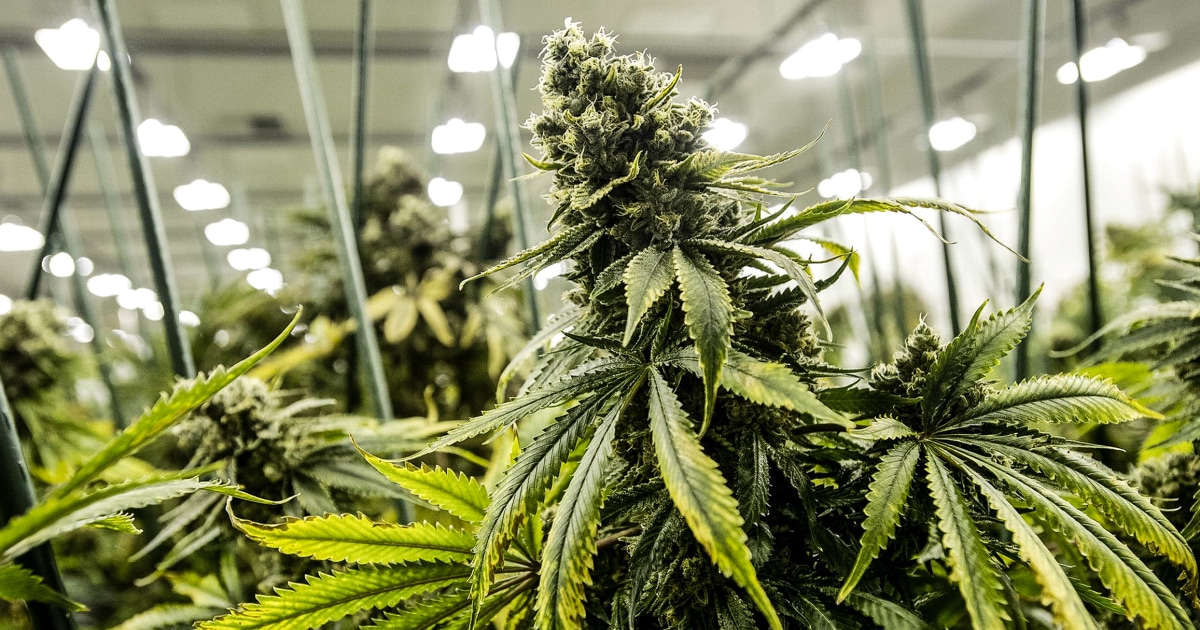#U.S. health agency recommends easing federal marijuana restrictions

WASHINGTON — The Department of Health and Human Services is formally recommending that the Drug Enforcement Administration ease government restrictions on marijuana, which remains illegal at the federal level even though 40 states allow its use in some form.
The move comes 11 months after President Joe Biden ordered the top health agency to conduct a review of the drug. The recommendation is to move marijuana from what’s known as a Schedule I drug to Schedule III, under the Controlled Substances Act.
In the eyes of the DEA, cannabis is in the same category as other Schedule I drugs like heroin and LSD, meaning it’s considered to have a high potential for abuse and no accepted medical use.
A spokesperson for HHS said it has “expeditiously” responded to the directive in providing its recommendation to the DEA on Tuesday.
If the DEA were to reschedule cannabis to Schedule III, it would most notably eliminate an IRS code intended to prevent drug dealers from claiming tax deductions for business expenses.
That alone could save the marijuana industry hundreds of millions of dollars a year. Small-business owners who spoke to NBC News said the inability to deduct what would otherwise be ordinary business expenses is their single biggest financial burden.
Now that HHS has made its recommendation, all eyes are on the DEA, which has the ultimate authority on scheduling substances.
The Biden administration had hoped to announce the rescheduling of the drug sometime in the fall, around the one-year mark of the president’s request for the review, according to five sources familiar with planning. It’s not yet clear how long the DEA’s public review process will take.
When reached for comment, a DEA spokesperson said: “We can confirm DEA received a letter from the Department of Health and Human Services providing its findings and recommendation on marijuana scheduling, pursuant to President Biden’s request for a review.”
“DEA will now initiate its review,” the spokesperson added.
Asked about the recommendation during a news briefing Wednesday, White House press secretary Karine Jean-Pierre said the review “is an independent process” that is led by HHS and the Department of Justice, adding that she would not comment on where Biden currently stands on the issue of decriminalizing marijuana at the federal level.
Reaction to the HHS recommendation has been largely positive on Capitol Hill. In a statement, Senate Majority Leader Chuck Schumer praised HHS as having done “the right thing” and urged the DEA to “quickly follow through on this important step to greatly reduce the harm caused by draconian marijuana laws.” Schumer, D-N.Y., said “there is much more that needs to be done legislatively to end the federal prohibition on cannabis and roll back the War on Drugs.”
Marijuana legalization advocates see this initial step as significant in and of itself: For the first time, the federal government is formally recognizing cannabis’ medical contributions.
The Cannabis Industry Association on Wednesday said that while the recommended reclassification would be historic, more should be done to align federal law with states where marijuana is legal. “The only way to fully resolve the myriad of issues stemming from the federal conflict with state law is to remove cannabis from the Controlled Substances Act and regulate the product in a manner similar to alcohol,” said CEO Aaron Smith in a statement.
Easing federal marijuana restrictions is also a political issue that both parties hope to capitalize on ahead of next year’s presidential election, as polls have indicated a majority of Americans support legalization.
Some Republicans, including Florida Reps. Matt Gaetz, Greg Steube and Brian Mast have publicly called on the drug to be rescheduled and urged the Biden administration to prioritize the effort. But on the presidential campaign trail, Florida Gov. Ron DeSantis doubled down this week on his opposition to marijuana decriminalization and legalization, despite voters in his state legalizing medical use of the drug last year. The Florida Supreme Court is now considering whether a cannabis legalization initiative will appear on the ballot in 2024.
Separately, there is an ongoing bipartisan effort in Congress that would make it easier for financial institutions to offer banking services to legal cannabis companies.
Schumer has said that getting the legislation, known as the SAFE Banking Act, across the finish line will be a “top priority” when the Senate returns in September. But a looming government shutdown could complicate that effort, even as lawmakers behind the bill have worked to break an impasse over the August recess.
If you liked the article, do not forget to share it with your friends. Follow us on Google News too, click on the star and choose us from your favorites.
For forums sites go to Forum.BuradaBiliyorum.Com
If you want to read more News articles, you can visit our News category.





